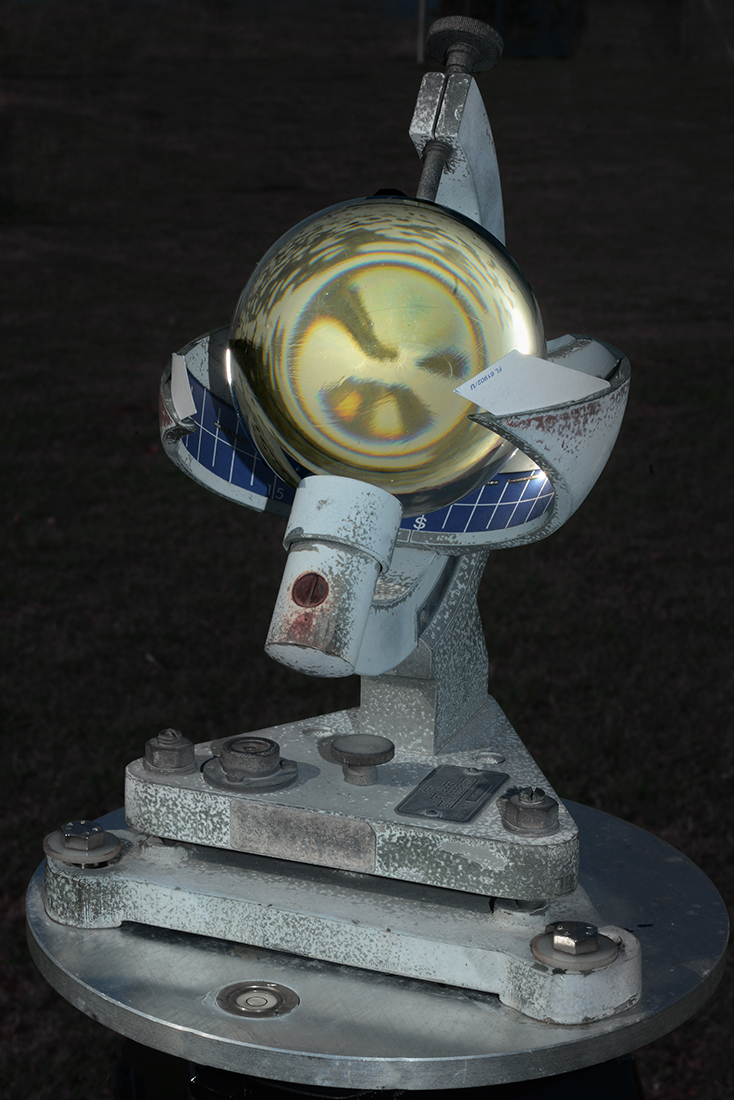Climate - NOMINEE: Marica Kolcheva
Marica Kolcheva
Meteorologica
Support this photographer - share this work on Facebook.
METEOROLOGICA
*currently on-going research project
The weather has always been a matter of concern for people everywhere. We depend on the weather for our health, comfort, food, and general well-being.
“Everybody talks about the weather”– the meteorological activity is important enough to dominate the conversation at social gatherings, so one can imagine how important the weather could be for the people whose very existence depends on it.
Since the time of the Ancient Greeks and Babylonians, people have been fascinated with weather phenomena and how they relate to human activities.
Basically, the first meteorologist was Aristotle, who wrote “Meteorologica” - a book on the weather describing the interplay of the elements. It covered the action of the sun causing vapours to rise up from the earth and the sea, so he entitled it Meteorology from the word meteoros meaning "raised up high". Meteoro-logica is "the discussion of high things" “Meteorologica” of Aristotle is also in close connection also with alchemy. Part IV of the treatise contains a detailed description of matter and becomes the basis of medieval alchemy. Alchemists sought control over nature.
Throughout history, human beings have always dreamed to achieve control over nature. Now we have come closer than ever to reaching this ultimate goal.
If we embrace the assumption that we are living in era of geological time during which human activity is considered to be the dominant influence on the environment, climate, and ecology of the earth – Anthropocene, we should admit that it’s also a manifestation of this desire for taming the nature and its elements, so fascinating and mesmerizing for humans; a dream come true.
Ability to perceive changes of weather in advance could be an expression of this longing of control and power, the desired triumph over nature. We used to pray for rain; now we practice cloud seeding. Weather modification experiments are fact.
Improvements in meteorology through research and technological innovation have drastically improved our ability to predict the weather. Modern weather forecasting is based on the application of computer models that describe the way the atmosphere changes using mathematical equations.
The role of meteorology becomes even more central to societies as they prepare for the dangers associated with significant changes in climate and environment caused by human activities.
Meteorologists not only study the weather, but also its intersection with society. This includes perceptions of forecast uncertainty, perceptions of weather risk, the psychological importance of weather, beliefs about and perceptions of climate change, public health and weather messaging, communication of weather information, etc.
“Science is magic that works”
From the rituals and superstitions to the new scientific experiments, my project “Meteorologica” is mapping the territory where magical thinking meets science as they are just two approaches to the knowledge.
My method includes analyzing sources like archive images, historical documents, scientific data, pre-scientific concepts and practices, practical experiment, meteorological tools, observing, interviews, documentation, reportage, image-making. I want to use a visual semantic, which is collaborative, containing archiving, networking, researching, and mapping among other tools. The expected result is a photographic project – a documentary story or visual (pseudo) scientific document based on the deep research, data and facts. This I will do in order to provoke discussion and create awarness (which used to come with responsibility) about human intervention in the natural world and the thin line between what we dream of and what we get out of it
Visualizing the world of meteorology, as a set of philosophical questions and social and scientific practices with a significant importance for the time we live in, I wil do in order to provoke discussion and create awarness (which used to come with responsibility) about human intervention in the natural world. Because the story of meteorology is a story of human desires, dreams and fears – the thin line between what we dream of and what we get out of it.
By hybridizing documentary and fictional narrative strategies, I investigate the relationship between modern meteorological science and weather modification experiments and earlier modes of knowledge about the weather. I put my focus on process of magic-becoming-science and open a dialoge space between the past, the present and the future.
By that, I want to challenge the regimes of representation and trying to re-activate my photographic strategies in order to actively engage in creating change and address the function of photography as a maker, living in the “permenant state of emergency”. My project comment on the role of photography in this debate.
My method includes analyzing sources like archive images, historical documents, scientific data, pre-scientific concepts and practices, practical experiment, meteorological tools, observing, interviews, documentation, reportage, image-making. I want to use a visual semantic, which is collaborative, containing archiving, networking, researching, and mapping among other tools. The expected result is a photographic project – a documentary story or visual (pseudo) scientific document based on the deep research, data and facts. This I will do in order to provoke discussion and create awarness (which used to come with responsibility) about human intervention in the natural world and the thin line between what we dream of and what we get out of it
About author:
Marica Kolcheva was born in Sofia, Bulgaria, and lives and works in Rotterdam, the Netherlands.
In her work she is mostly interested in revealing the extraordinarily that is hidden in seemingly mundane everyday gestures and investigating in hard to be visualized subjects. Her research addresses the possible strategies to visualize what remains out of sight/ the invisible/ what is absent and non-existing/what is un-representable.
Education:
MA in Photography, Royal Academy of Arts, The Hague, Netherlands
BA in Film Studies, National Academy for Theatre and Film Arts, Sofia, Bulgaria

